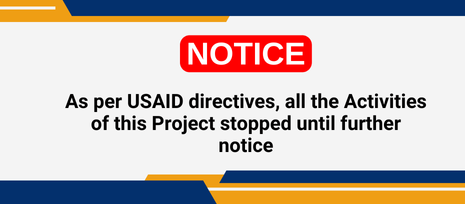USAID’s Swapno Jatra Activity has been designed to be a comprehensive and transformative program in Bangladesh. The program’s technical approach is based on the hypothesis that if young girls are to avoid early marriage and childbearing, they need primarily to continue their education and aspire to be more than wives and mothers, while boys’ and parents’ perceptions also need to change in this regard.
Funded by USAID and led by Mott MacDonald Inc., in partnership with SERAC-Bangladesh, Plan International, and icddr,b the project will be implemented in Dhaka, Rajshahi, Chattogram, and Rangpur, covering sixteen upazilas with high vulnerability and logistical feasibility.
Swapno Jatra’s goal is to reduce early marriage and adolescent childbearing (EM&AC) by working with government programs to improve decision-making and close equity gaps. The project supports the National Plan of Action to End Child Marriage, the 5th Health Sector Program, and other relevant initiatives, aiming to empower adolescents and strengthen community and institutional systems. By the project’s end, AHA aims to achieve:
– Strengthened governmental, private, and community systems to prevent EM&AC, including enhanced coordination.
– A significant shift in norms among adolescents and communities that contribute to EM&AC.
– Increased school retention rates for both girls and boys, promoting reproductive choice.
These efforts are expected to reduce EM&AC rates over the next 5-10 years.
SERAC will lead the way in increasing the agency of boys and girls to delay marriage and early childbearing by institutionalizing effective solutions. Key activities include:
– Establishing new physical and virtual youth-led clubs for very young adolescents (VYA) aged 10-14 from vulnerable communities, supported by Volunteer Peer Leaders (VPLs). These clubs will offer Social Emotional Learning (SEL) sessions and recreational activities to enhance skills, competencies, and aspirations.
– Organizing School Transition ceremonies and open day celebrations to empower vulnerable boys and girls at high risk of dropping out and early marriage.
– Implementing local-level SMART advocacy by recruiting, training, and engaging VPLs to provide skill-building support and promote sexual and reproductive health services through community and school outreach campaigns.
– Conducting Union council advocacy and resource mobilization to educate local health officials about budget provisions, replicating SERAC’s success in influencing councils to support local Family Welfare Centers (FWCs).
– Developing and tracking multi-sectoral Scorecards at upazila and union council levels, involving VYAs in scoring systems and accountability mechanisms.
Through these initiatives, Swapno Jatra aims to create lasting change, reducing early marriage and childbearing rates, and fostering a healthier future for Bangladesh’s young people.




